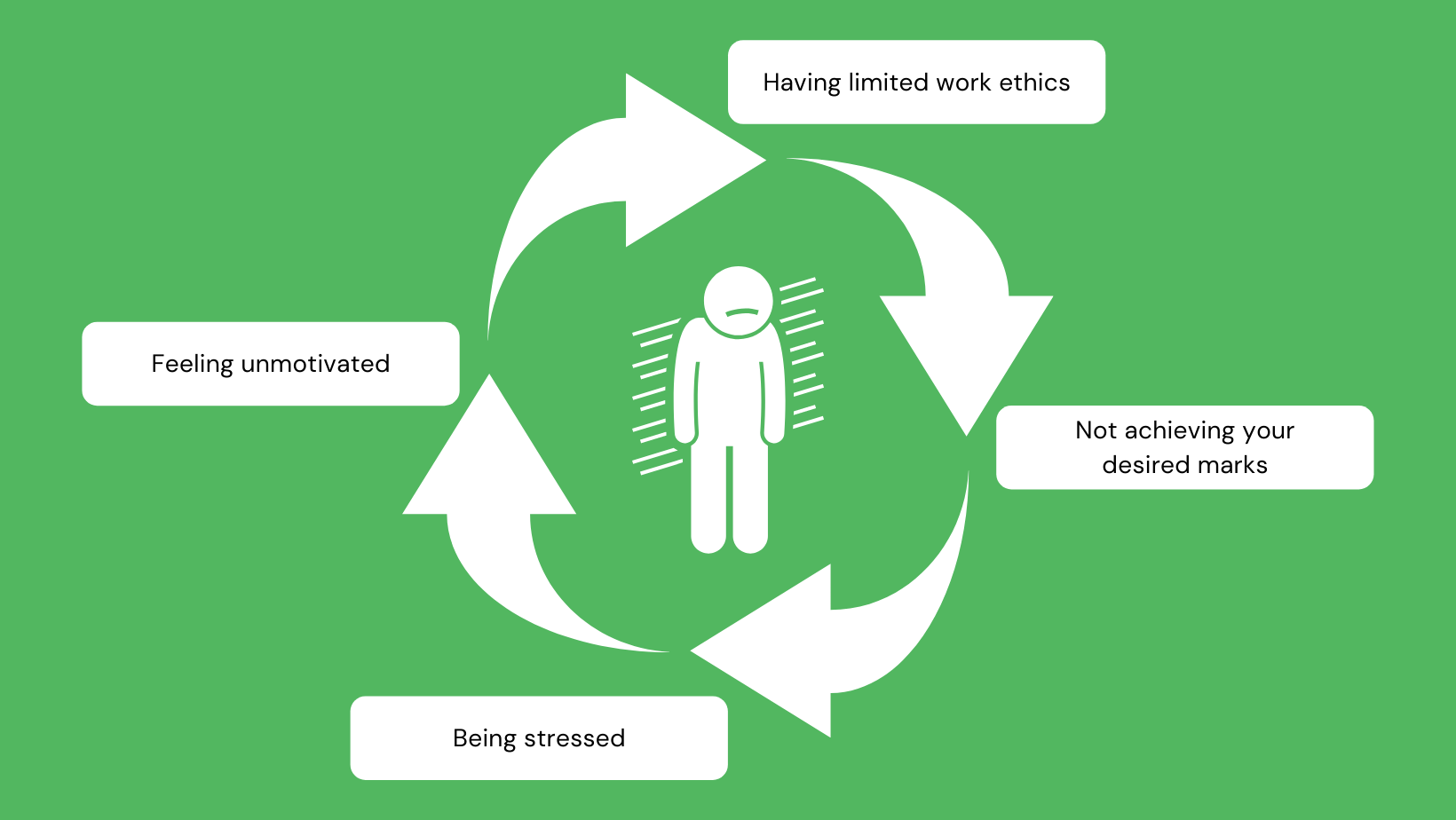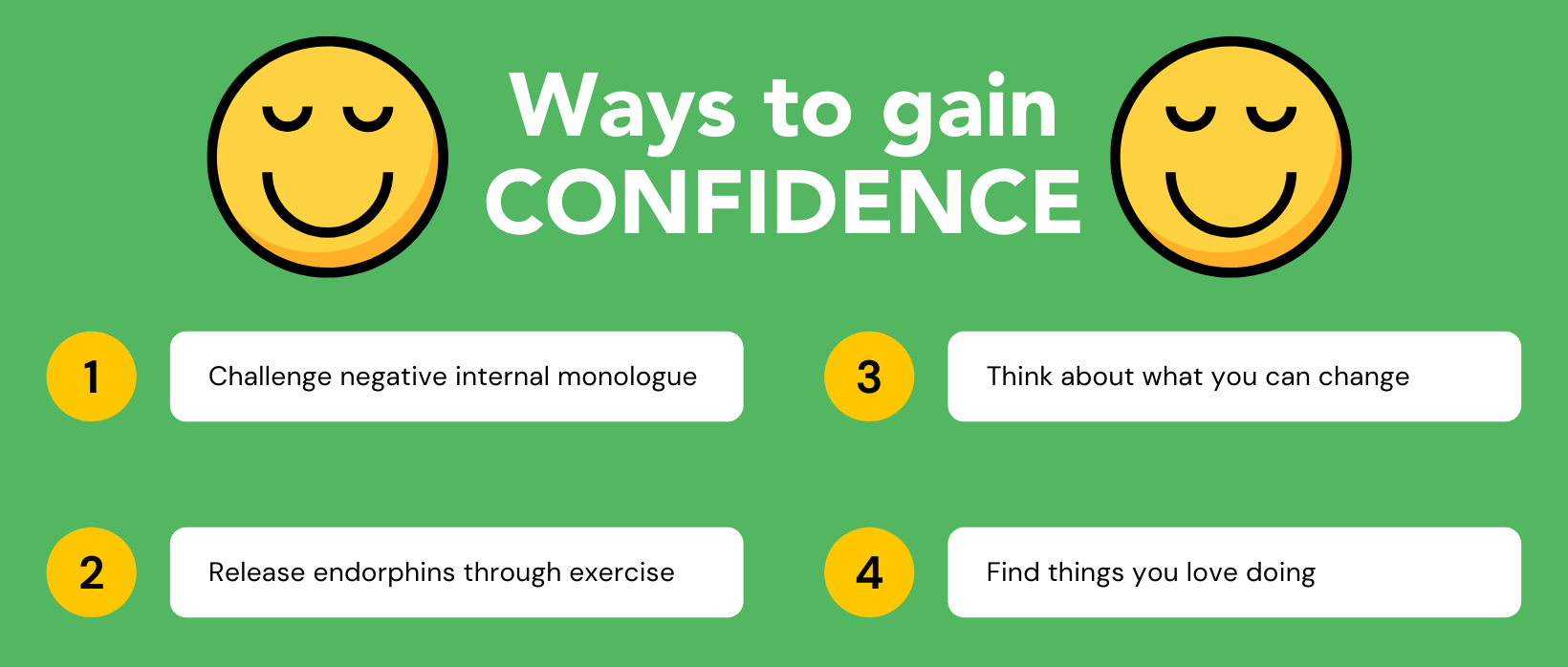Has the HSC got you feeling stressed but don’t feel like you can pinpoint the exact causes? We hear you, so today, we’re going to crunch some statistics about the causes of stress in students so you can understand more about why you’re feeling this way, and what you may be able to do about it.
This issue goes beyond simply your workload or marks, so we are going to keep a well-rounded approach and look at many areas of life! We will be looking largely at information from this report, which you can read in full if you’d like to know more.
Keep reading to learn the facts!
What is stress?
Cause #1: Lacking control over life situations
Cause #2: Low self-esteem
Cause #3: Study concerns
What is stress?
Mission Australia, in collaboration with Black Dog Institute, reports that 1 in 4 Australians between 15-19 are now experiencing psychological distress. While there are social factors at play, such as your level of education, demographic and access to mental health resources, it’s clear that the numbers are rising quickly.
Stress is when the body is affected by issues around it, causing physical or mental tension. Usually, stress lasts for a short period of time and is about a specific thing, but it can become more chronic.
In practical terms, you may be stressed because you have complicated situations occurring around you, pressure is building up, or you feel uncomfortable.
Mission Australia has broken down some of the main forms of stress. Though these are general for young people, they are issues which are often exacerbated during HSC as pressure builds.
Now let’s look at the main causes of stress in students.
Cause #1: Lacking control over life situations
Quite aside from the level of study you may need to take on, your senior years of high school are incredibly formative in making you the person you are. This is exciting, but it’s not without its drawbacks.
According to the report, almost 10.8% percent of young people surveyed with psychological distress felt they had no control over their life. This number was almost tripled (27%) for young people of Aboriginal and Torres Strait Islander backgrounds.
If you don’t feel like you have much control, it may be related to fitting into friendship groups and figuring out your own identity. What do you want to do after school? What do you want to be known for? Are you a kind person? As trivial as these questions can seem, they are actually huge things to tackle!
There’s pretty good evidence to suggest young people find it difficult to feel autonomy in their own life. In fact, Mission Australia’s 2018 survey found that not even half the surveyed students felt they had great control.
You may also feel out of control around your study habits. Let’s break this down a bit further:
Procrastination
Procrastination is a huge issue for students and can be incredibly difficult to stop. We often do this because we are scared of failing tasks, or we feel like (in some twisted way), we can gain back control if we do fun things instead of working.
You can find out more tips on overcoming procrastination here.
Feeling unmotivated
If you feel unmotivated, you can find yourself in a cycle of stress, limited work ethics, not getting the marks you want, back to being stressed, and feeling unmotivated again.
Not sure whether you’re going to continue high school until Year 12? Check out why it might be a good idea not to drop out of high school yet.
Comparison to others
Comparing yourself to others can make you feel like you’re not good enough, leading to poor study habits and less control. If you are not keeping up with your peers, what’s the point?
Comparison is one of the most common ways that really promising students go from having great control and low levels of student stress, to limited decision making skills and more panic.
Cause #2: Low self-esteem
We’ve already touched on this, but self-esteem is a really massive thing when tackling your last years of school, life decisions and everything that goes along with it. It’s so easy to be swept into feeling like you’re not at the standard you should be!
There’s a few reasons why limited self-esteem adds to stress. First, not having confidence in yourself can make challenges seem like big issues that you’re not able to overcome, instead of something to work through. The workload of HSC can then seem unbearable. Further, having a lack of confidence is not only demoralising, but it can affect your marks!
This makes it easy for your self-esteem to launch into a downhill spiral pretty easily. In fact, one of the statistics about student stress in the report we’re looking at showed less than 14% of students surveyed had very high self esteem.
34.4% of surveyed students placed themselves in the lowest bracket for self-esteem. The highest percentage of this was in 18-19 year olds, suggesting that HSC may have a big impact on confidence.
Clearly, we have an issue here — young people around Australia do not see themselves as well performing members for their schools or communities. It’s time to bring your confidence back!
According to Reachout, here’s some ways that you can gain confidence, thereby reducing stress:
- Challenge negative internal monologue by thinking of positive things about yourself
- Exercise! You’ll release endorphins, making you feel more confidence in your abilities
- Think about what you can change in your life and try not to worry about the rest
- Find things that you love doing. Do them lots!
It’s also important to remember that, according to the statistics about the causes of stress in students, most other students don’t feel confident in their own abilities either. You’re all in it together!
Check out different strategies for developing your confidence here!
Cause #3: Study concerns
We’ve saved the most obvious cause of stress in students for last! Though study concerns are a high element of student stress, it’s important to also consider all the things we have just discussed and take a holistic approach.
In 2018, 60.4% of surveyed females and 43.9% of males who are already in personal distress said they were very concerned about school or study problems. Over half the surveyed students between 17-19 were stressed about school.
From this research, we can see that the workload of HSC can have a profound impact on your mental wellbeing. This is especially true if you are a student who wants to do well in their studies.
You’ve got school work to complete, but you also want enough time for assignments and extracurricular activities — there really is a lot on your plate. Though you may not be able to minimise factors or academic stress completely, there are some things you can do to help.
You can read our tips here, but let’s summarise them:
- Create a schedule that works for you
- Get regular exercise
- See your friends!
- Find some hobbies that you enjoy
- Practise mindfulness through apps such as these
And those are the 3 biggest causes of stress in students!
Hopefully, these statistics have helped you understand more about the underlying factors to student stress. While it’s easy to blanket it over as an issue that affects young people because of HSC workloads, there are so many more factors at play.
Take the time to learn more about yourself and what you need. Chat to friends and family, or get professional advice from places like Lifeline or Headspace.
For now, though, go for a walk or watch your favourite show — you deserve it!
Lucinda Garbutt-Young hopes to one day be writing for a big-shot newspaper… or maybe just for a friendly magazine in the arts sector. Right now, she is enjoying studying a Bachelor of Public Communication (Public Relations and Journalism) at UTS while she writes on the side. She also loves making coffees for people in her job as a barista, and loves nothing more than a sun shower.








